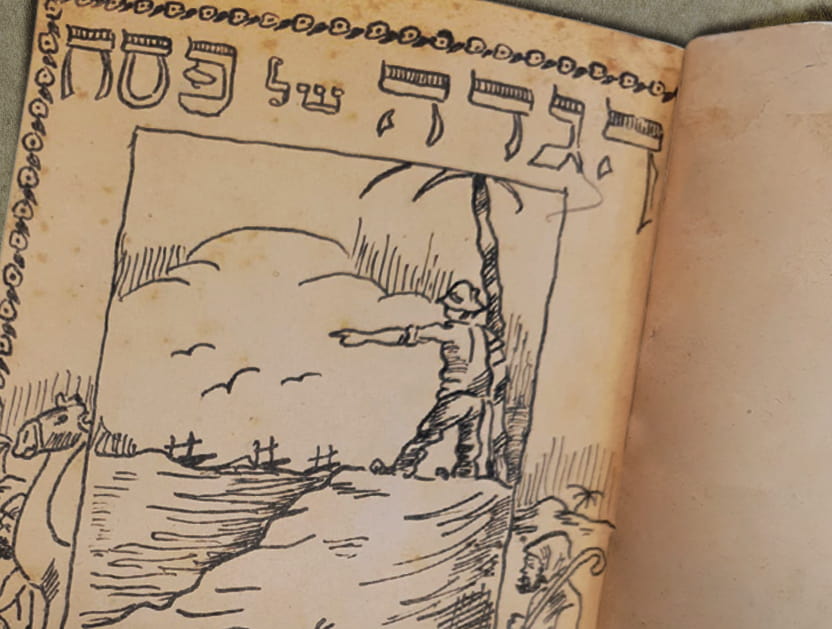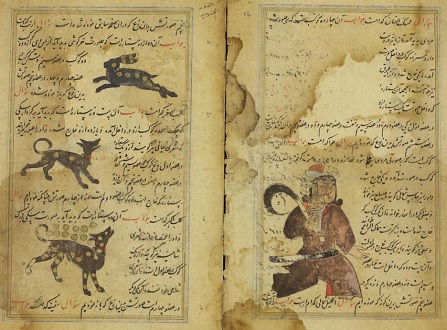David Solomon Sassoon (1880-1942) was the son of Flora and Solomon Sassoon and is best known for the collection of Jewish manuscripts and Judaica that he built during his lifetime. David was also involved in the family business and was active in the Anglo-Jewish community, especially the Spanish and Portuguese community, and aided Jewish communities abroad. In 1912 he married Selina Prins (1883-1967). Selina was involved in her Dutch family's public activities and after her marriage. in Anglo-Jewish communal activities. During the 1930s and 1940s she actively helped victims of Nazi persecution. Selina was a Zionist and was involved in philanthropic activity in Israel. The archive contains family letters, documents, diaries and notebooks, business and collection-related letters and publications, and letters and documents relating to the London Jewish community and refugees.
Fonds 04: David and Selina Sassoon Archive
להגדלת הטקסט להקטנת הטקסט
| כותר |
Fonds 04: David and Selina Sassoon Archive. |
|---|---|
| יוצרים נוספים |
Selina (Prins),Sassoon 1883-1967 |
| מתוך |
Sassoon Family Archive. |
| רמת התיאור |
Fonds Record |
| תקציר ביוגרפי |
David Solomon Sassoon (1880-1942): David was born on December 8, 1880 (6 Tevet 5641) to Flora (Farha) and Solomon (Suleiman) Sassoon (Flora's documents are in sub-fonds ARC. 4* 1790 03), at their estate on Malabar Hill, Bombay. David is best known for the collection of manuscripts that he assembled during his lifetime, a collection that is regarded as one of the biggest and richest of its kind. In India David received an upper class secular education and in addition to his home schooling in the best Iraqi Jewish tradition, he learned with teachers brought by the family from Baghdad, including Rabbi Yitzhak Agasi, who taught David's mother, Flora, in Baghdad, and Rabbi Shua Abraham (Shenduch). As a result, David received a rich general and religious education and was fluent in several languages, the main ones being English, Arabic and Hebrew. Following the death of his father in 1894, David took on some of the responsibility for the family business. His mother, Flora, took on most of the running of the business, with the aid of his older sister, Rachel. David was an authorized signatory for official documents, and during his travels he would represent the family business. This meant that he was already making business trips to Japan and the Far East at the age of 17. As he grew older, David took on more business responsibility, partly in order to allow his mother time to take care of his younger sister Mozelle's illness. This was especially true after his sister Rachel got married and moved back to India. In 1911 the family finally moved permanently to London and took up residence at 32 Bruton Street. A month after his sister Rachel's wedding, David married Selina Prins on December 17, 1912 (7 Tevet 5673). The couple continued living with his mother at 32 Bruton Street until 1940 and they had two children, Flora (Farha) Feuchtwanger (June 24, 1914) and Solomon (Suleiman) (1915-1985). (See sub-fonds ARC. 4* 1790 06). David busied himself with acquiring manuscripts and Judaica, and with research and publishing. To this end he travelled all over the world, including to Iraq, Syria, Egypt, Israel and Europe. He was involved in Jewish community life in London, where he was treasurer of the Etz Chaim yeshiva, and one of the leaders of the Spanish and Portuguese community. He was also involved in issues concerning communities in trouble outside of England, including sponsoring Dr. Jacques Faitlovitch in his early efforts to save Ethiopian Jewry and helping refugees from Eastern Europe. Prior to World War I David volunteered to serve in the Bombay Light Horse for the Delhi Durbar of 1902-1903 (the coronation ceremony of Edward VII). He was not conscripted during the war due to health problems, but he volunteered in the local munitions brigade. In 1916 he assisted the British War Office in the censoring of letters written in Judeo-Arabic by Jewish soldiers at the front. This was as a result of a personal request from Dr. Lionel David Bart, the director of the Oriental department at the British Museum, who was also working as a censor in the British War Office. In 1940 the family was forced to move to Letchworth, a north-east London suburb, because their house had been damaged in the Blitz. David divided up his manuscripts, storing some in a purpose-built storeroom in their new house and others in the British Museum. David died two years later, on August 10, 1942 (27 Av 5702) from the lung disease that he had suffered from for most of his life. Selina (Prins) Sassoon (1883-1967): Selina (Sarah Ziska) Prins was born in Amsterdam on October 9, 1883 (8 Tishrei 5644) to Maurits (Moshe Meir) and Emma (nee Lehman) Prins. The family was wealthy and well-connected and Selina was involved in the family's public activities. Selina corresponded frequently with her family and was in contact with her sister-in-law, Rachel Ezra, on a weekly basis for 30 years. From the 1930s Selina was active in women's organisations that helped victims of hate attacks in Germany and Poland. During and after the war she was involved in helping refugees and locating family members. Selina was a Zionist and was involved in philanthropic activity in Israel. She passed away on November 12, 1967 (10 Cheshvan 5728) and at her request, she was buried next to her husband on the newly freed Mount of Olives. |
| מספר מערכת |
990050546640205171 |
תנאי השימוש:
לכל תיק בארכיון נקבעו תנאי השימוש המתאימים
תנאי השימוש מופיעים בדף התיק הארכיוני באתר הספרייה הלאומית.
למידע נוסף על שירות בירור מצב זכויות היוצרים ותנאי השימוש בפריטים מאוספי הספרייה לחצו כאן.
תצוגת MARC
יודעים עוד על הפריט? זיהיתם טעות?

 כניסה עם גוגל
כניסה עם גוגל
 כניסה עם פייסבוק
כניסה עם פייסבוק



